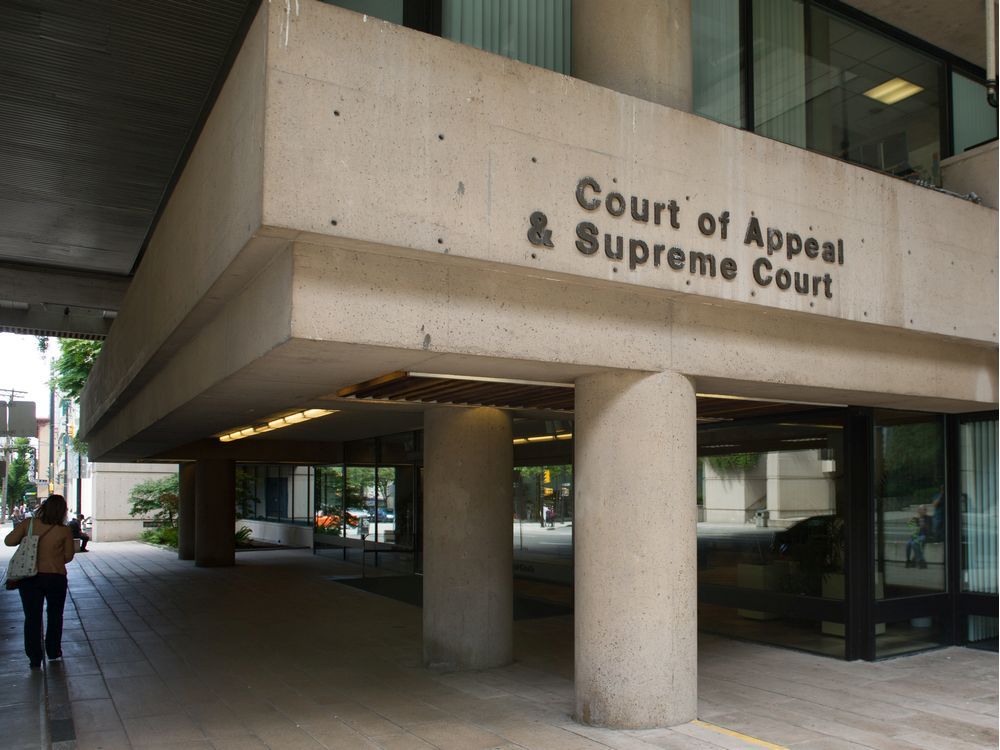B.C. Appeal Court rules transgender teen can decide on hormone treatments

Credit to Author: Susan Lazaruk| Date: Sat, 11 Jan 2020 02:23:43 +0000
The B.C. Court of Appeal has upheld a teen’s right to hormone therapy to help transition to a male body from a female one.
The written judgment in the case, which pitted the teen’s father against the boy and his mother, confirmed what two lower court judges had ruled: Under provincial law, a mature minor can consent to medical treatment without parental consent.
The teen’s “consent to that treatment is valid, and no further consent from his parents … is required,” the ruling said of the now 15-year-old.
The father’s refusal to respect his son’s decision has caused the boy “significant pain,” causing a breach in a loving parent-child relationship, Chief Justice Robert Bauman and Justice Barbara Fisher wrote. “This rupture is not in (the boy’s) best interests. He clearly wants and needs acceptance and support from his father,” they wrote in the unanimous ruling.
They also said the father had refused to discuss the case with the boy’s medical team or to listen to the teen. “If he fails to do these two things, the rupture in his relationship with (his son) will likely not heal, which would not be in (the boy’s) best interests,” they wrote.
However, the judges questioned the lower court judges terming the father’s actions, including refusing to call the teen by his chosen name, as “family violence.”
The child was referred in 2018 by a psychologist to hospital to treat gender dysphoria and doctors agreed it was in the child’s best interests to proceed with hormone therapy and obtained consent from the child and his mother.
The father went to court to try to block the treatment, but in February, B.C. Supreme Court Justice Gregory Bowden ruled the child was “exclusively entitled” to consent to treatment.
Bowden also declared any attempt to persuade the child to abandon treatment or any references to the child using female pronouns “shall be considered to be family violence.”
In April, B.C. Supreme Court Justice Francesca Marzari issued a protection order restraining the father from publicly discussing the case after finding interviews he’d given to conservative media outlets could expose the child to violence and harassment.
The father filed an appeal arguing lower courts hadn’t considered all scientific opinion, that a person his child’s age is incapable of appreciating the potential consequences of a “still experimental treatment,” and that an order preventing him from publicly talking about his child’s gender identity infringed on his freedom of expression.
The Court of Appeal ruled “there was insufficient evidence in the unique circumstances here to ground a finding of family violence — that is, emotional or psychological abuse — as defined in the Family Law Art.”
“Raising the issue of family violence in the context of this case causes the parties to become increasingly polarized in their positions, thus exacerbating the conflict and raising the stakes in the litigation,” they ruled, adding it would not be in the child’s best interest.
The judges replaced a “protection order,” which they said has “serious implications,” with a less formal “conduct order.” But the terms remained the same: It bans the father from trying to persuade the teenager to abandon his treatment, from addressing him by his birth name, from referring to him as a girl, or from publishing or sharing information about his son’s sex, gender identity, sexual orientation, mental or physical health, medical status or therapies, except with his lawyers and those closest to him, as long as those individuals agree not to repeat the details.
But they also ruled the father is entitled to his views and is entitled to communicate those views to his child. “This difference of opinion alone cannot justify a finding of family violence.”
They ruled it’s up to the boy as a mature minor to listen to opposing views and to “disengage in conversations that he finds uncomfortable or offensive,” which they said evidence shows he had done.
“The take-away is a parent cannot prohibit a child from getting treatment if the child understands the treatment and the risks associated with it,” said the child’s lawyer, barbara findlay, who does not use capital letters in her name. “I would explain to the parents of a transgender youth that the law requires them to respect their child’s gender identity and the child is permitted to get treatment if a doctor agrees.”
She said the court’s inability to see psychological abuse as violence is a concern.
The father’s lawyer, Herb Dunton, said he was still studying the decision and had no comment.